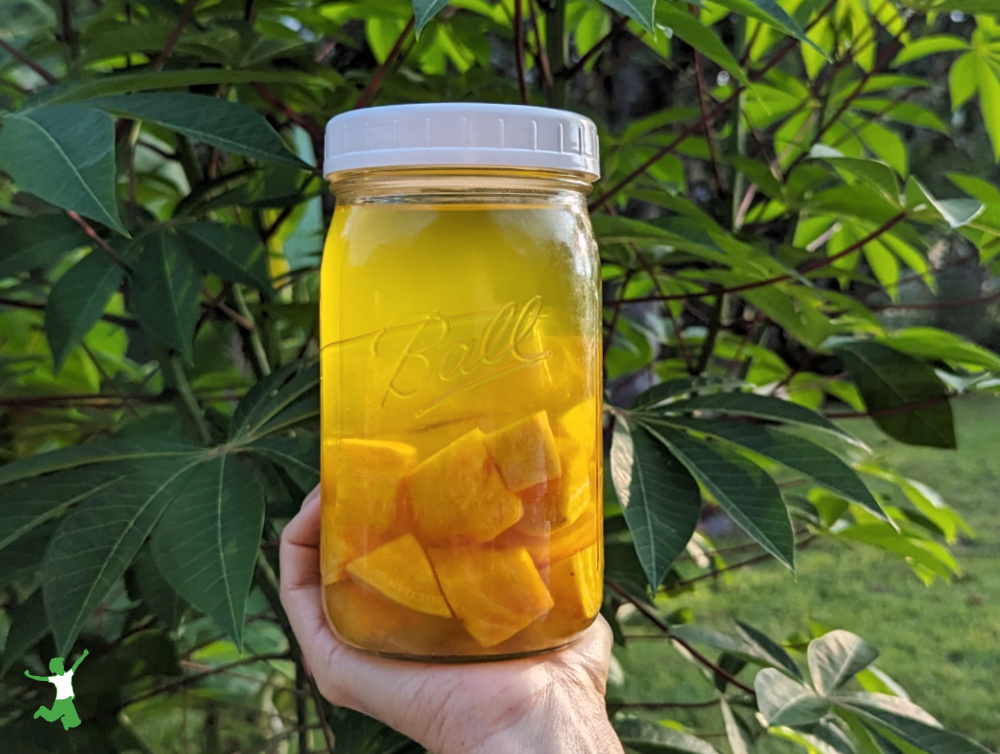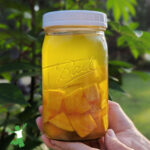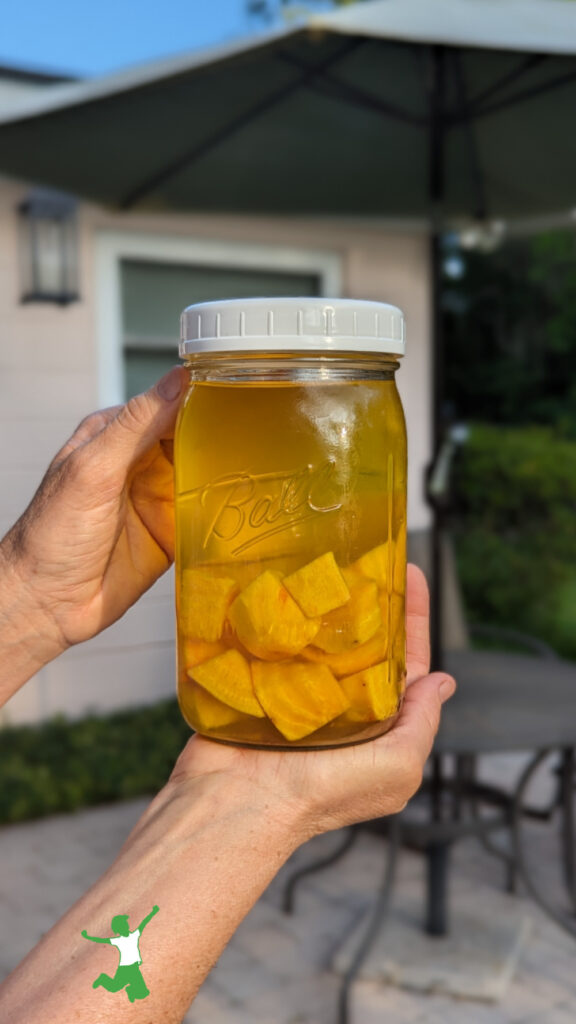Traditional kvass recipe using golden beets for a sweeter and less earthy flavor. Loaded with probiotics, trace minerals, and enzymes, it is the perfect health tonic to sip first thing in the morning.

One of the very first fermented beverage recipes published on this blog (in 2010!) was a recipe for red beet kvass.
I’ve made this traditional Russian tonic for over two decades as the perfect morning beverage to sip, enjoy and energize in the morning instead of a cup of coffee.
I first came across it in 2002 in Nourishing Traditions. This cookbook is a must-have for anyone learning the basics of traditional foods.
Beet kvass as a cultured beverage is so nutrient-dense that it is a natural and highly beneficial alternative to conventional and organic multivitamin brands, which usually contain (at least a few) synthetic nutrients.
Despite its health benefits, some people do not enjoy the taste of beet kvass.
Thus, I thought I would share an alternative version made with golden beets, the sweeter and less earthy-tasting cousin of red beet kvass.
I call it “golden kvass”. I first started making it when my local urban farm harvested an amazing crop of golden beets this spring.
The taste of golden beet kvass is a welcome flavor mix-up according to my taste buds. Give it a try if you see golden beets available at your farmer’s market or independently owned healthfood store.
Azure Standard also has organic golden beets, if you are a member of this co-op and wish to add them to your next order!
If you are sensitive to whey, substitute one of these methods for dairy-free fermentation instead. Probably the easiest approach is to use a cultured vegetable starter (my preferred source).

Golden Kvass
Traditional kvass recipe using golden beets for a sweeter and less earthy flavor. Loaded with probiotics, trace minerals, and enzymes, it is the perfect health tonic to sip first thing in the morning.
Ingredients
- 2 medium golden beets tops removed
- 2 Tbsp liquid whey
- 1 tsp sea salt
- filtered water
- cultured vegetable starter Use instead of whey if dairy sensitive
Instructions
-
Wash golden beets, peel, and coarsely chop into chunks no smaller than about 1/2 inch across. Peeling and coarse chopping reduces the chance of kahm yeast bubbles on the ferment.
-
Place golden beet chunks into a clean, one-quart mason jar. Add whey, sea salt, and enough filtered water to fill all but 1 inch from the top of the jar.
-
Stir and mix well. Use a glass fermentation weight to keep beet chunks fully submerged in the liquid to discourage mold.
-
Screw on the lid and leave on the kitchen counter for 1-2 days.
-
Drink as desired and refrigerate once the fermentation period is complete. One 4-ounce glass morning and evening is recommended.
-
When an inch of golden kvass liquid is left in the jar, refill it with more filtered water. Stir and screw on the lid and leave on the counter for 2 days. Refrigerate the fresh batch of beet kvass and drink as desired.
-
When all the liquid is used up from the second batch, discard or compost the beets and start the process again.









Forgot to mention the oxalic acid in these plus the fermentation is fugus producing in my body, I don’t think this is multivitamin just because it has a pretty color.
According to my research, the bioavailability of oxalates in beets is relatively poor. For example, it is 6 times less so than spinach and contains far less than spinach too.
Thus, beets are well tolerated even by those who are sensitive to oxalates.
Not sure where you got the idea that fermentation is fungus producing? The fermentation itself produces a broad spectrum of probiotics that are balancing and beneficial to gut health.
Beet kvass is always so pretty. I have multi-colored beets from the garden waiting to be used. I have some red beet kvass on it’s second fermenting round right now. I like to add ginger and drink about 4oz each day. Have you ever tried adding carrots or squash to your (butternut) kvass? I’ve heard about those versions but haven’t tried them yet. Thanks for this pretty variation!
I haven’t tried those variations myself, but they sound delish!!